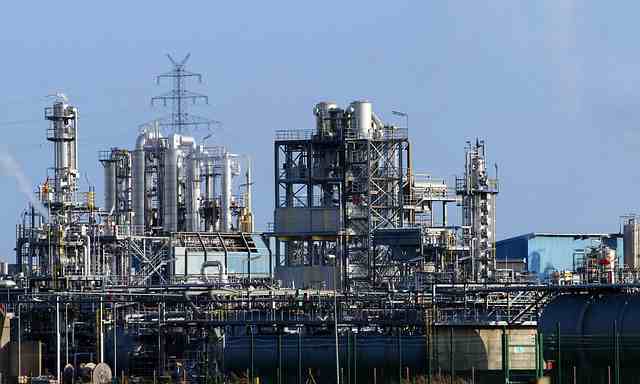

Inquiry

Project Review

Machining

Quality Control

Pass/Fail

Delivery
The oil and gas industry is one of the most demanding industries in the world, with critical applications that require precision and reliability. Machining plays a critical role in the manufacturing of parts and components for this industry, as the slightest flaw or deviation from specifications can have catastrophic consequences. In this article, we will explore the techniques and technologies used in machining for the oil and gas industry.
One of the most important aspects of machining for the oil and gas industry is the choice of materials. Due to the harsh and corrosive environments in which these components operate, they must be made from high-strength materials that can withstand extreme temperatures, pressures, and chemical exposure. Materials commonly used in the oil and gas industry include stainless steel, Inconel, titanium, and nickel alloys.

To meet the demanding requirements of the oil and gas industry, machining companies must utilize advanced techniques and technologies. One such technique is computer numerical control (CNC) machining, which allows for high-precision and repeatable manufacturing of complex parts. CNC machining is particularly useful for the production of components such as valves, pumps, and compressors, which require tight tolerances and precise surface finishes.
Another technology commonly used in machining for the oil and gas industry is electrochemical machining (ECM). ECM is a non-traditional machining process that uses an electrolytic process to remove material from a workpiece. ECM is particularly useful for the manufacturing of complex parts that are difficult to machine using traditional methods, such as heat exchangers and turbine blades.
In addition to advanced machining techniques, the oil and gas industry also requires stringent quality control measures. Machining companies must adhere to strict standards such as ISO 9001 and AS9100, and must have processes in place to ensure that each component meets the required specifications. This includes extensive inspection and testing, as well as documentation of all processes and procedures.
Finally, machining for the oil and gas industry requires a high degree of collaboration and communication between the machining company and the end customer. The oil and gas industry is constantly evolving, with new technologies and applications emerging all the time. Machining companies must be able to adapt quickly to changing requirements and work closely with their customers to ensure that they are providing the best possible solutions for their needs.
In conclusion, machining for the oil and gas industry is a complex and demanding field that requires advanced techniques and technologies, stringent quality control measures, and close collaboration between the machining company and the end customer. By utilizing the latest machining techniques and working closely with their customers, machining companies can ensure that they are meeting the demanding requirements of this critical industry.

AJL Machining is a professional and industry-leading one-stop shop for custom metal parts services. We have our own factory and a reliable network of partners that enable us to cater to your requirements ranging from prototypes to large-scale production.
Add: No 58, Chenghu Road, Kunshan, Suzhou City, Jiangsu Province, China 215333
Email:sales@ajlmachining.com
Tel: +8613522650203